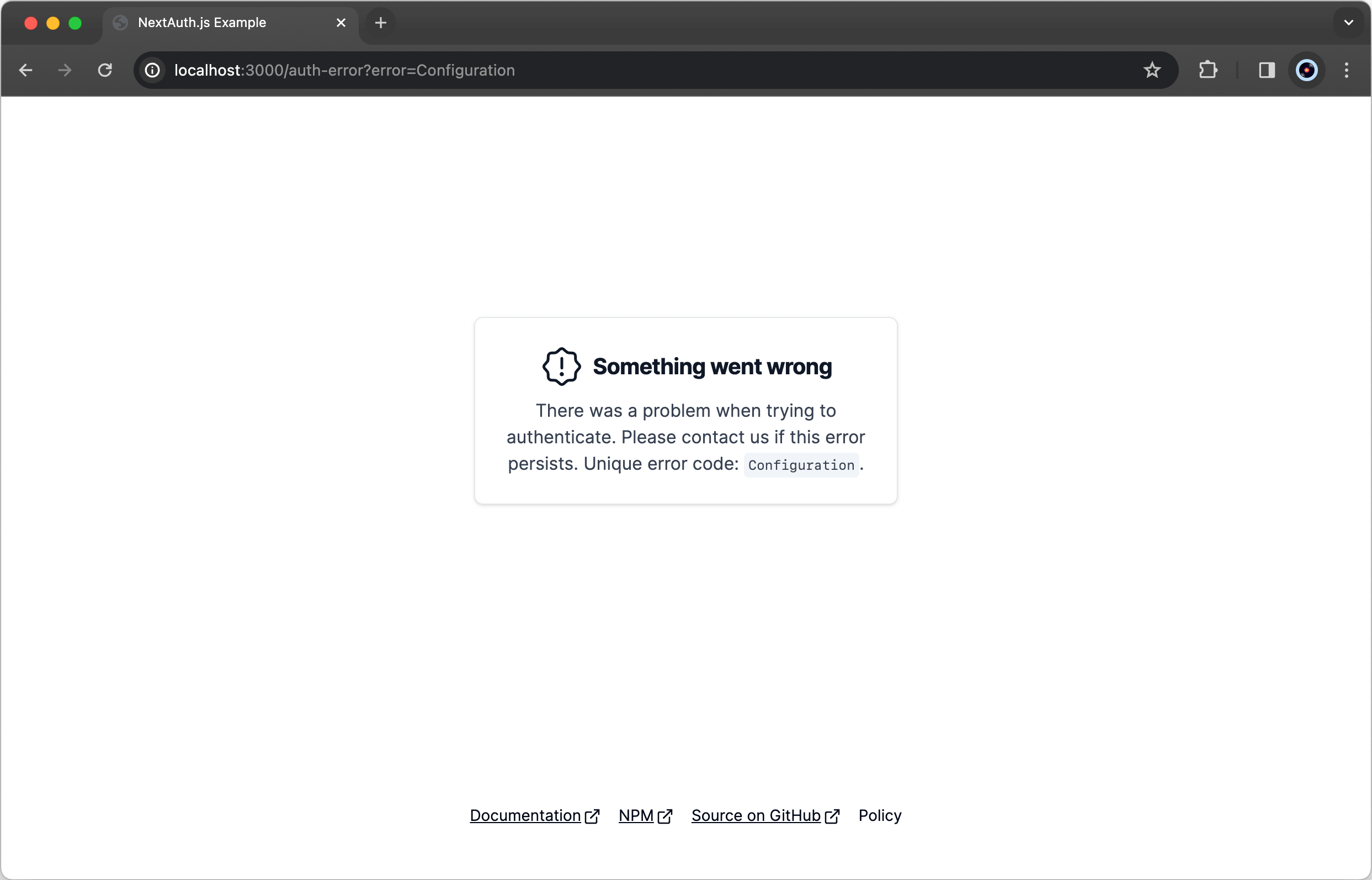Custom error page
Auth.js can be configured to display a custom error page when something goes wrong during the user authentication flow (sign in, sign out, etc..).
Using the example app, let’s build a simple custom error page:
app/error/page.tsx
import { signIn } from "../auth.ts"
export default function AuthErrorPage() {
return <>Oops</>
}Auth.js forwards the following errors as error query parameters in the URL to our custom error page:
| Query Param | Example URL | Description |
|---|---|---|
Configuration | /auth/error?error=Configuration | There is a problem with the server configuration. Check if your options are correct. |
AccessDenied | /auth/error?error=AccessDenied | Usually occurs, when you restricted access through the signIn callback, or redirect callback. |
Verification | /auth/error?error=Verification | Related to the Email provider. The token has expired or has already been used. |
Default | /auth/error?error=Default | Catch all, will apply, if none of the above matched. |
So now we can update our custom error page with it:
app/error/page.tsx
"use client"
import { useParams, useSearchParams } from "next/navigation"
enum Error {
Configuration = "Configuration",
}
const errorMap = {
[Error.Configuration]: (
<p>
There was a problem when trying to authenticate. Please contact us if this
error persists. Unique error code:{" "}
<code className="rounded-sm bg-slate-100 p-1 text-xs">Configuration</code>
</p>
),
}
export default function AuthErrorPage() {
const search = useSearchParams()
const error = search.get("error") as Error
return (
<div className="flex h-screen w-full flex-col items-center justify-center">
<a
href="#"
className="block max-w-sm rounded-lg border border-gray-200 bg-white p-6 text-center shadow hover:bg-gray-100 dark:border-gray-700 dark:bg-gray-800 dark:hover:bg-gray-700"
>
<h5 className="mb-2 flex flex-row items-center justify-center gap-2 text-xl font-bold tracking-tight text-gray-900 dark:text-white">
Something went wrong
</h5>
<div className="font-normal text-gray-700 dark:text-gray-400">
{errorMap[error] || "Please contact us if this error persists."}
</div>
</a>
<div></div>
</div>
)
}Now, when an error happens, Auth.js will redirect the user to our custom error page:
